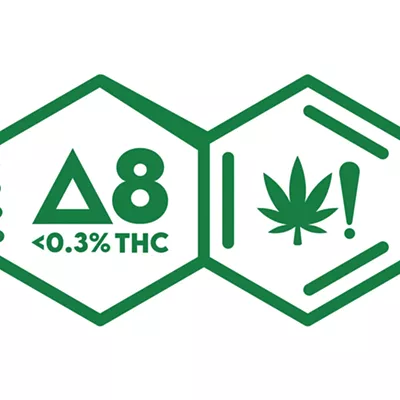You may have noticed some new information posted at your local dispensary if you've paid a visit in 2025.
Since Dec. 31, all retail stores in the state are required to post information on high-THC products and the potential risks associated with their use.
The signage, designed by the state Department of Health, focuses on two specific health disorders that have been associated with "frequently using products with 35% THC or higher," specifically cannabis use disorder and psychotic disorders such as schizophrenia.
Cannabis use disorder — or, simply put, addiction — is essentially the cannabis version of alcohol use disorder and is associated with tolerance, cravings and excessive use.
According to Yale Medicine, approximately 10% of cannabis users will become addicted to the substance, and nearly one in three current users meet the criteria for at least mild addiction.
As for the second set of risks — psychotic disorders — the scientific community is still learning the depths of the connection, but much of the research on the topic has been concerning. The signs warn that the risk is higher if you have a personal or family history of mental health disorders and are younger than 25.
In fall 2022, a team from the University of Washington School of Medicine published a report on the proliferation of high-potency cannabis products in the state's legal market. They found that prior to legalization, typical cannabis potency ranged between 8% and 10% THC.
As of 2022, that potency had increased dramatically, with many products clearing well above 20%. However, the focus was not so much on traditional flower, but rather on products that can often reach concentrations of 90% THC or more.
"The more you use THC, the more content of THC in your products, the more likely you are to become addicted to it," says Beatriz Carlini, an addiction researcher at the University of Washington. "Or we would say technically having a cannabis use disorder, and [the] more likely you are to develop a psychotic episode, acute psychotic episode, and potentially a psychotic disorder, which is rare."
Washington has grappled with how to respond to the rapid increase in popularity of these high-THC products. In 2023, the Washington Legislature considered a bill to increase the tax rate on products above 35% THC, though that didn't pass.
For now, the state is taking an educational rather than financial approach to these products, by requiring stores to post signage illustrating the risks.
If you are struggling with cannabis use, you can call the Washington Recovery Hotline at 1-866-789-1511.♦




















